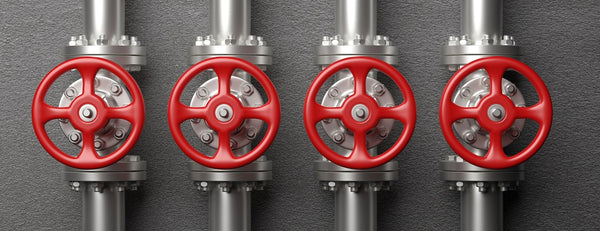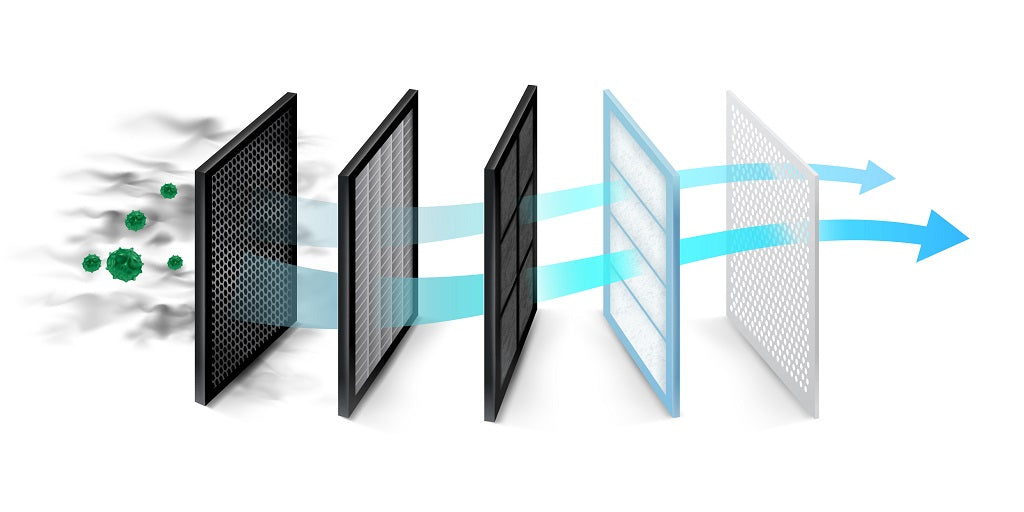
Clean air filters are critical for your comfort and for keeping your HVAC systems running properly. By taking care of the air filtration at home, you can improve the indoor air quality and prologue your equipment’s service life.
We want to share some of the most helpful air filter maintenance tips to help you get the most out of your HVAC. So, keep reading to learn more!
Why Should You Change Air Filters?
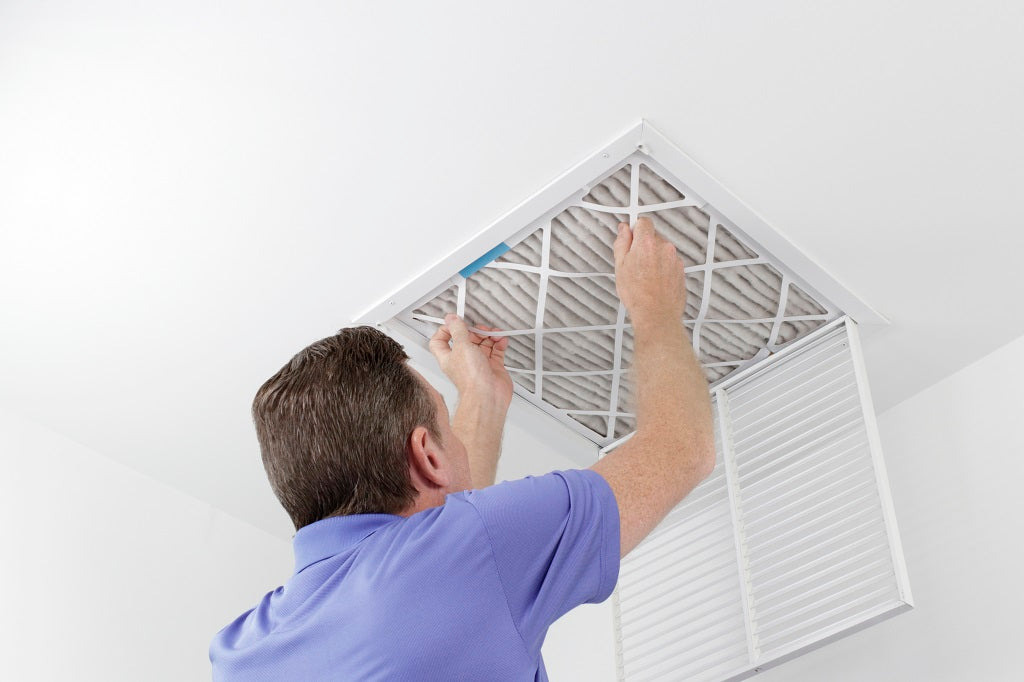
Many people change air filters only after wearing them out. But this laziness can cost you, literally and figuratively.
Clogged filters can’t stop dust or pollen as effectively as they should. Pollutants that don’t get trapped in filters start circulating in your home and enter your respiratory system. People prone to allergies have it the worst. You can suffer from sneezing, itching, and watery eyes, and all because of the poor home air filtration.
You should keep air filters clean to ensure your AC units are performing with maximum efficiency. Dirty filters prevent your equipment from working at full force and increase your energy bills. Ultimately, poor maintenance can cause your equipment to fail in time.
6 Air Filter Tips to Get The Most Out of Your HVAC
Every homeowner can ensure their HVAC works at top efficiency without stacking up the electric bills. How? Just follow the tips below.
1. Choose the filter based on MERV rating
To get the best indoor air quality without overpaying, you need to choose filters with an optimal MERV rating. Now, what does “MERV” mean on air filters?
In short, MERV (Minimum Efficiency Reporting Value) is a standard used to measure the effectiveness of air filters. You can use this rating to compare different types of filters. The higher the rating, the more particles the filter traps.
- MERV 1-4. It can filter dust but won’t improve the indoor quality significantly.
- MERV 5-8. Captures dust and smaller airborne particles that can cause allergies. This is an optimal rating range for homes.
- MERV 9-12. Works for larger households or families with pets.
- MERV 13-16. Filters many types of pollutants, gasses, viruses, and bacteria. This range is typically used in commercial settings or healthcare facilities.
As you probably guessed, the efficiency of air filters grows proportionally with their price. So there’s no reason to get a MERV 13 filter for home central air filtration systems. Here’s a chart to help you understand the differences between MERV ratings:
| MERV 5-8 | MERV 9-11 | MERV 13-16 | |
| Equipment protection | Good | Great | Great |
| Average dust | Good | Good | Great |
| Heavy dust | Bad | Good | Great |
| Odors | No | Good | Great |
| Smoke particles | No | Bad | Great |
| Allergies | Good | Good | Great |
2. Clean and replace the filters regularly
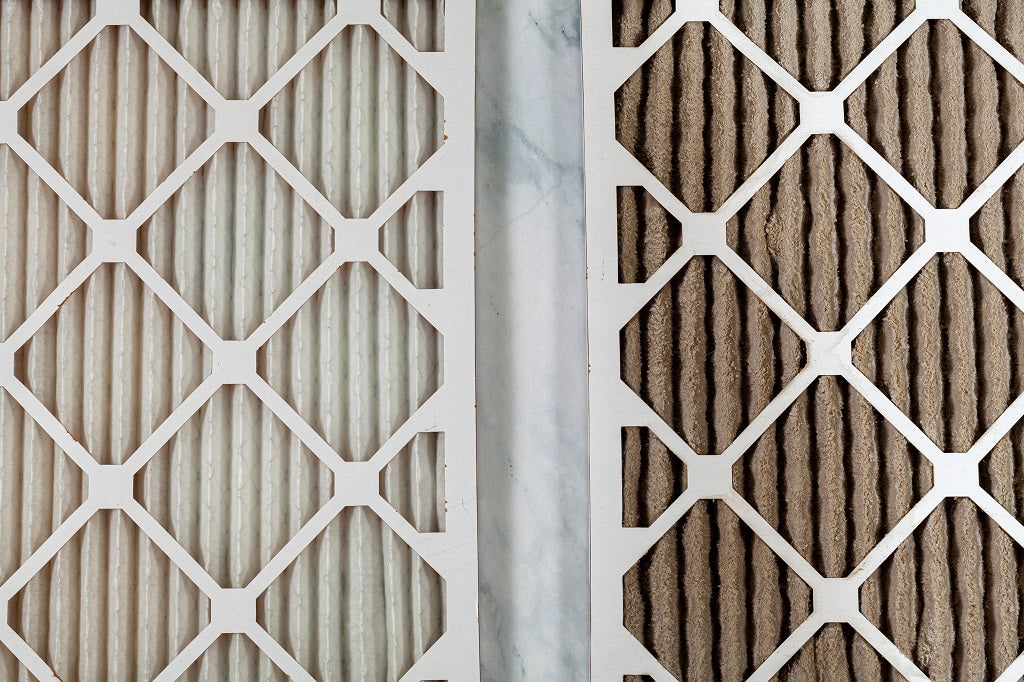
Air filters should be kept clean if you want your HVAC equipment to work better and last longer. You should replace or clean filters based on their specifications and MERV rating. As a rule of thumb, this usually means:
- Every 3 months for MERV 1-4 range
- Every 2 months for MERV 5-8 range
- Monthly replacement for MERV 8 rating and higher
Now, try to remember when was the last time you actually checked your HVAC equipment. How can you remind yourself to replace filters every few months? Here are some tips to ensure you always check your air filters:
- Set reminders on your smartphone
- Create events in your calendar for future dates
You should also keep replacement air filters in your home inventory. But we’ll talk about this in greater detail later.
3. Take your living space into consideration
It’s undoubtedly important to replace filters regularly based on their MERV rating. However, there are additional factors you should consider:
- Type of residence. Apartments with single occupants or vacation homes don’t require frequent air filter replacements, whereas bigger houses need regular HVAC maintenance. We suggest changing filters every 3 or 4 months if you’re living alone. If you have a suburban home, consider replacing AC filters at least every 2 months.
- Pets. The more pets you have, the more often you need to replace filters. If you have one pet, we would advise doing this every 2 months. When living with multiple companions, you might want to do this every 30 days.
- Respiratory problems. It’s better to replace filters every month if someone in your home suffers from allergies or other respiratory problems.
External factors can have a significant impact on indoor air quality. For example, you might want to replace filters more frequently if there’s ongoing construction near your area home.
4. Set the thermostat to AUTO
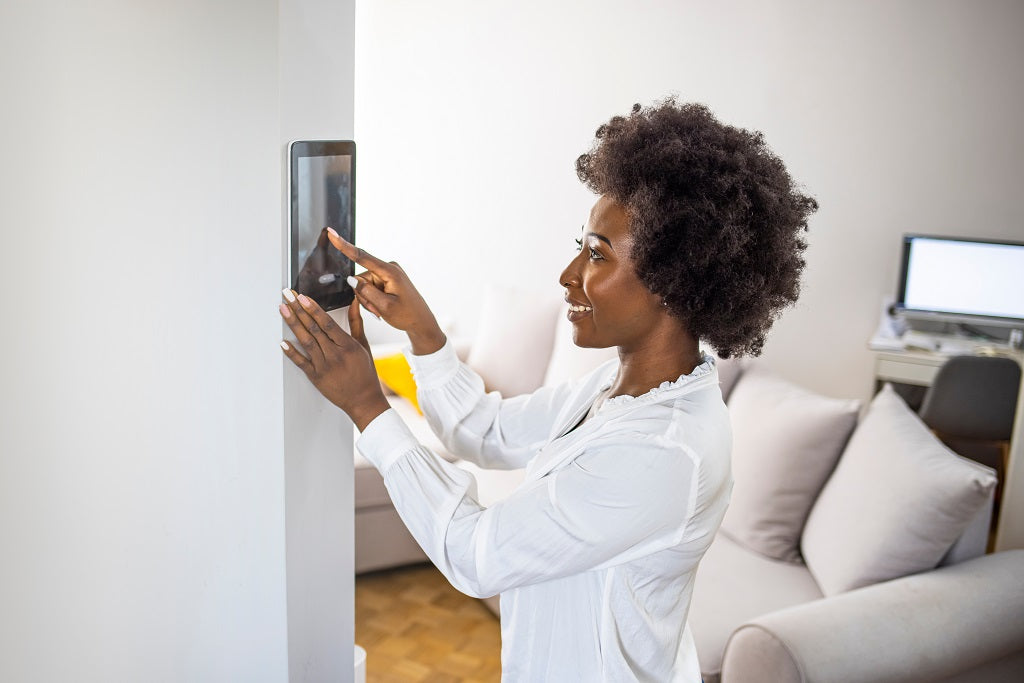
Having the thermostat set to the ON position means it runs 24/7 regardless of your AC unit or furnace. This means your system will circulate warm air non-stop and, consequently, clog up your filters much faster.
We recommend setting the thermostat to AUTO instead of ON. This ensures the fan activates only when your AC is working. As a result, you’ll optimize home air filtration, reduce the strain on air filters and air conditioning units, and lower energy consumption.
5. Don’t neglect professional maintenance
You’ll need professional maintenance to make sure air filters provide optimal home filtration levels. For example, you should call experts if you notice the following:
- Strange odors coming from the AC
- Abnormal humidity levels in your home
- Leakage from your systems
- Clattering noise coming from the unit
- Slow airflow and other efficiency problems
- Growing electricity bills (faulty equipment can consume much more energy than it needs)
Waiting for something to break before calling professionals is a terrible strategy. Besides, most of the time, you won’t know that something’s wrong with your HVAC or filters until examination. That’s why we recommend calling in experts at least once a year.
6. Buy replacements from a reliable company
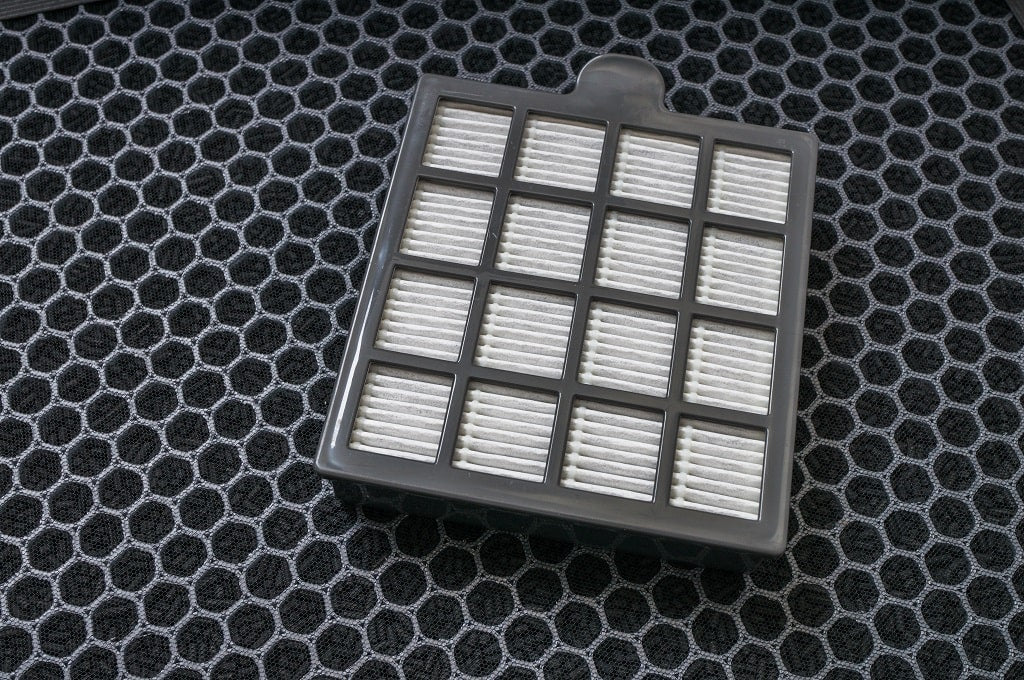
No one likes going to the store just to buy a new air filter. Many people procrastinate just because of this. Now, here are a few tips to help you out:
- Buy a few boxes of filters at once (enough to last you for a few seasons or years)
- Set up reminders to order filters at set intervals (for example, every 1 or 2 months)
Thankfully, you don’t need to bother with these chores if you order from Blackhawk Supply. Our store has a wide selection of HVAC parts and accessories at an excellent price with affordable shipping.
Conclusion
As you can see, you can easily improve your HVAC service life and ensure the best air quality in your home. Just make sure to follow our air filter maintenance tips and buy replacement parts regularly.
At Blackhawk Supply, you easily find new filters for your AC units. Feel free to look at our catalog or request a quote at our store!

